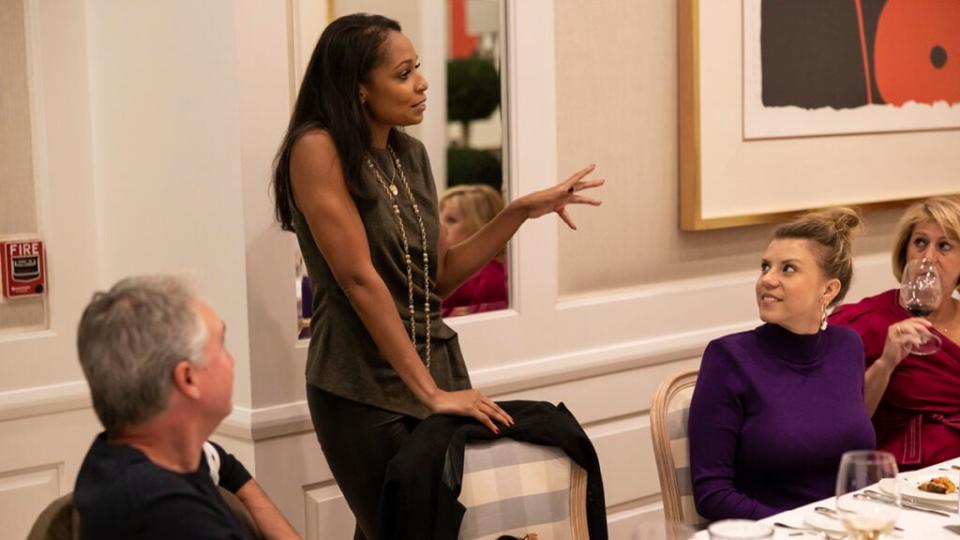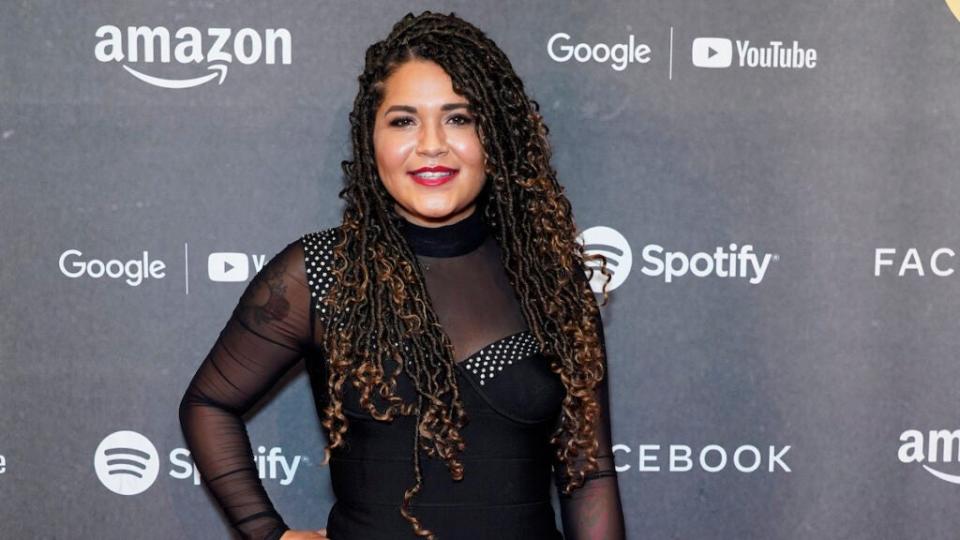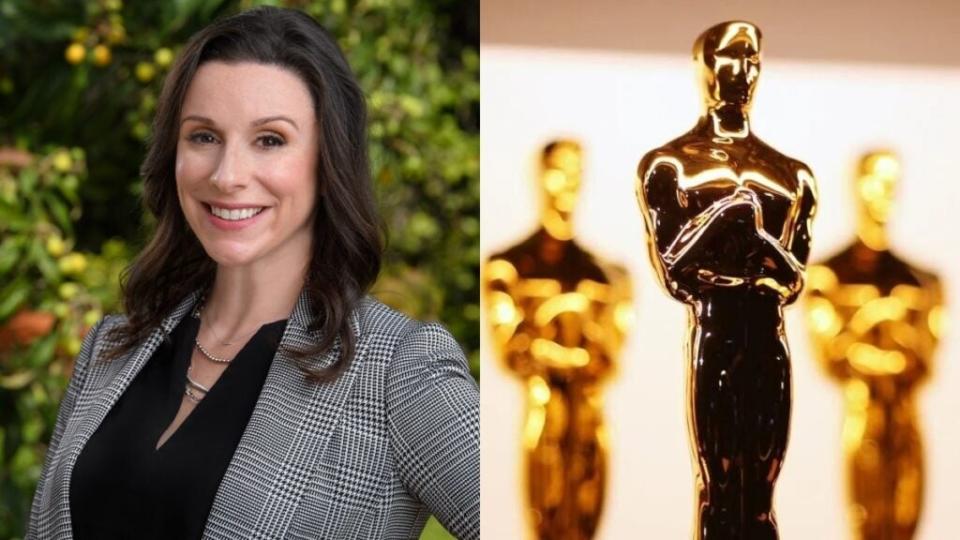Hollywood’s Diversity Exec Exodus Exposes Industry-Wide Dysfunction – What Is the Path Forward? | Exclusive
- Oops!Something went wrong.Please try again later.
You are reading an exclusive WrapPRO article for free. Want to level up your entertainment career? Subscribe to WrapPRO.
After the sudden exits of top diversity and inclusion executives at Warner Bros. Discovery, Disney, Netflix and the Motion Picture Academy in the past month — all of them Black women — alarm bells have been raised for many who care about Hollywood’s commitment to gender and racial equity.
While the circumstances of each executive may differ, more than a half dozen interviews by TheWrap across the DEI community suggest that Hollywood’s institutions have thus far failed to make inclusion part of the industry’s DNA, that DEI executives feel isolated and exhausted, saying they were “set up to fail” or citing a lack of sufficient resources. Others said that downgrading DEI executives from reporting to CEOs sent a message of diminished commitment.
“We need to be at a point where we are operationalizing inclusion, and that comes with creating real responsibility for this work in all levels of the organization in all positions in some capacity,” Jeannell English, who stepped down as Academy of Motion Picture Arts and Sciences’ EVP of impact and inclusion, told TheWrap exclusively.
She observed: “I find it interesting that I had to make headlines exiting the Academy for conversations on my work to begin and that’s concerning.”

In June, English became the fourth top diversity executive to exit in a 10-day span. Her departure was preceded by Disney’s chief diversity officer and senior vice president Latondra Newton, Netflix’s head of inclusion and strategy Vernā Myers, and WBD’s SVP of diversity, equity and inclusion Karen Horne.
The other executives who exited either declined to speak for this article or could not be reached. After their departures, Disney is searching for Newton’s replacement; Netflix promoted inclusion strategy VP Wade Davis into Myers’ role; WBD won’t be replacing Horne as the department has been restructured; and after English’s resignation, AMPAS promoted Kendra Carter to SVP of impact and global talent development.
While representatives for those organizations declined to comment for this article, a Disney rep pointed to their online diversity and inclusion mission statement. Meanwhile, AMPAS has since pledged to increase representation among department heads and to add more disability representation.
Why now? As stocks fell last year, Hollywood was under increased pressure from Wall Street to show profitability. The industry responded with layoffs and budget cuts. Netflix and major studio streamers had their free passes revoked — no longer were they getting credit for spending billions of dollars with just big content libraries and increased subscriber numbers to show for it. They now have to watch the bottom line too. While some companies saw their stock prices marginally recover in the first half of this year, POC-led content has suffered and diversity inclusion is taking a back seat.
Also Read:
‘Diversity Fatigue’? Hollywood Loses 4 DEI Leaders in Less Than 2 Weeks
For some, the timing of the four DEI exec departures signal an industry-wide abandonment of the diversity, equity and inclusion initiatives that had been launched in 2020 following the racially charged murder of George Floyd. At the time, several Hollywood companies — including Netflix, Disney and ViacomCBS (now Paramount Global) — made public statements denouncing racism and coupled them with million-dollar donations and promises to create more racial and gender-inclusive programming as well as new hiring pipelines and employee training.
But as with other industries, many businesses have begun to pull back from those commitments — either as priorities shift or financial pressures demand cutbacks. In May 2022, Netflix laid off nearly its full team at its fan site Tudum, which was largely staffed by Black, Latino and Asian women. In August, shortly after David Zaslav took the helm at Warner Bros. Discovery, he was criticized for the lack of diversity on his leadership board and for cutting what seemed to be a disproportionate number of non-white staffers, in the first of several mass layoffs.
The impact of the four Black executives’ exit is being felt outside of Hollywood: On Thursday, the California Legislative Black Caucus, which is comprised of members of the state’s Black lawmakers, called on Hollywood studios to address this “troubling pattern.”
And inside the industry, the concern is palpable, even as Hollywood is absorbed in a labor shutdown.
“I think a lot of people had no strategic plan beyond 2020 when George Floyd happened,” DEI consultant Kristen Marston, who served as an advisor on Ava DuVernay’s “When They See Us,” told TheWrap. “A lot of things are tied to the news cycle, unfortunately. It’s OK to lean into those moments in powerful ways, but it’s not OK to use those moments as leverage for PR.”

AMPAS, which has vastly increased its membership of women and racially diverse members in the past five years, was thrown off guard by the criticism, issuing a statement: “We want to reiterate, in the strongest possible terms, the Academy’s commitment to not only continuing, but expanding our efforts to promote diversity and inclusion within our organization and the film industry at large.”
But English is not the only executive of color to leave the organization. Others who have departed since July 2022 include COO Christine Simmons; vice president, global relations and member outreach Patrick Harrison; and, most recently, executive vice president of member relations, global outreach and awards Shawn Finnie.
In April Meredith Shea was named the Academy’s first chief membership, impact and industry officer, tasked with bringing together the Academy teams for new-member cultivation and outreach along with many other areas — becoming English’s new boss.

English told TheWrap that taking a look at the role of a DEI leader, their responsibilities and how a company is supporting that position could point to a more viable solution to Hollywood’s longstanding challenges with progressing and maintaining DEI efforts.
“I think it’s important for us to not be reaching for a trend here in terms of our departure, but questioning, is this model of a chief diversity officer really what’s needed to progress the industry,” English said. “If that consensus is, ‘Yes, we value these roles, we see these roles, we want these roles to continue to exist and to thrive’ — how are we supporting them? Before these individuals leave, before they hit that point of burnout, exhaustion or fatigue.”
“I’ve heard leaders say they were set up to fail and not given the proper respect or resources to really do the job that they were hired for,” Marston said. “And if people who want to do good aren’t protected, we’re going to continue to lose valuable employees who are really trying to make a difference.”
The increasing burnout among DEI executives is documented in McLean & Company’s 2023 HR Trends Report, which was released in February. The study found the average tenure of a chief diversity officer has decreased from three years to less than two years and that listings of DEI roles were down 19% in 2022. The McClean report found that 59% of DEI employees cited a lack of time to do the work, 43% cited insufficient resources and funding and 29% blamed lack of leadership support.
Farah Harris, a licensed psychotherapist and CEO of WorkingWell Daily, highlighted how hard it can be for a person of color to carry the weight of being a diversity leader at a company while also potentially navigating instances of racism and discrimination in the workplace and lack of support.
“It’s hard to be the advocate and the abused,” Harris said. “Many of those who work in DEI are also members of marginalized communities. They are exhausted by having to make a case for their — and others’ — existence and experience. They have to fight against the narrative that DEI and the lived experience of people is political and not a human rights issue. And they are also burned out by the lack of buy-in and support from senior leadership.”
In an interview with TheWrap, Color of Change president Rashad Robinson added that Hollywood’s DEI meltdown may also be due to businesses not being fully prepared for the type of work it actually takes to make change in the name of diversity, equity and inclusion.
“I think a lot of these folks got into it thinking they would be able to make some quicker wins than they’d actually be able to achieve,” Robinson told TheWrap. “It takes much longer and it’s more challenging. In many cases, [companies] have to shift their business model to make the types of impacts they stated they want to make. I think some of [those things] runs up against the ways in which their business has always functioned, and they’ve chosen the business over the diversity and over the equity.”
English said the key to implementing DEI-centered change requires a custom approach tailored to each company’s needs. “Once you actually understand what you’re trying to solve for, you should be hiring a ‘diversity’ role that can solve that. There’s not one universal position that exists. It really needs to be specific for the organization. If you’re looking at your slate of films or TV shows and they tend to skew or focus only on one specific community, is the diversity role a chief diversity officer? Or is it ingrained in your business operations in a different way?”
She added, “We need to be at a point where we are operationalizing inclusion, and that comes with creating real responsibility for this work in all levels of the organization in all positions in some capacity. That’s the only way you’re going to be able to distribute the work equitably amongst an organization.”
At least one studio has appeared to successfully maintain a focus on inclusion. An NBCU insider said the studio was succeeding because they’ve been at it longer. “Everyone was doing the corporate lean-in in 2020 because of George Floyd. But NBCU had been doing the lean-in for years,” the insider told TheWrap, referring to programs like NBCU’s partnership with the American Black Film Festival that began in 1997. (HBO is also part of the ABFF partnership.)
The insider stressed that a direct reporting structure at NBCU is “key” to their approach to DEI, as opposed to the previous studio where the individual worked, which had multiple layers between the DEI head and the chairman. “It is a night and day difference… to have a direct lean-in.”
For example, Universal’s Janine Jones-Clark, EVP of inclusion, reports directly to chief content officer Donna Langley; Craig Robinson, NBCU’s EVP and chief diversity officer, reports to the division’s acting head and Comcast president, Mike Cavanagh; and NBCU News Group’s EVP of DEI, Yvette Miley, reports to division chairman, Cesar Conde.
This person added, “When you work in this space, you need support, you need buy-in from creatives and executives. It’s best that you’re associated with the business rather than HR, because there’s a perception that in HR you’re [only] checking a box.”
Disney, Netflix, WBD and the Academy still have DEI executives — some of which are part of their HR departments. Those companies stress they’re still dedicated to continuing diversity and inclusion efforts.
Sharon Waxman contributed to this article.

